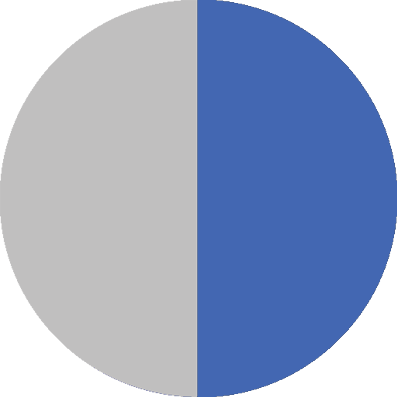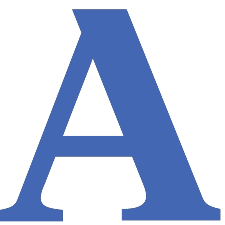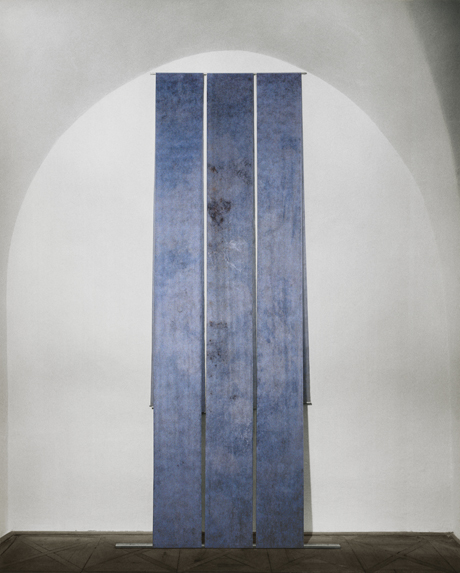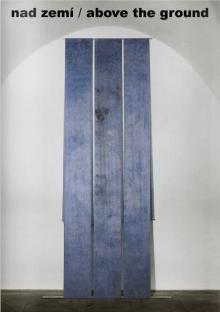Vojtěch Lahoda: Nad zemí / Above The Ground
Visual Arts 5/1990 - Journal of the Union of the Czechoslovakian Visual Artists (výtvarné umění)
Pages 56-60
7 ill., portfolio, 225 x 310 mm
Editor in Chief: Milena Slavická
Published by Unie výtvarných umělců
© UVU, Praha 1990
ISSN 0139 9365
UVU ČR
In November 1989, Miloš Šejn exhibited a remarkable realization under the laconic name Clouds in the Prague Youth Gallery. The work forced attention in the large lunette of the last gallery hall not only to light blue flickering radiation, but also to installation. In order to assess the sense of Šejns cloud and the overall strategy of his artistic message, it is necessary to do some technological vivisection of the work.
The birth was extremely laborious. It consisted of a number of consecutive problems, mostly technical. The clouds are three coils of fabric pre-impregnated with a ferrotypic sensitive layer. It must be sprayed in a room without daylight access. Then the scrolls dry and pack up, they move to where the painter will continue to process them. Such a place has Miloš Šejn on the hill Zebín and Jičín, which was also loved by Karel Hynek Mácha. He stayed in the former quarry literally inside the mountain, where he stretched the belts and secured them with stones. He began to process them in the usual way with natural pigments found in the surrounding area, pollen of flowers and bird droppings. And then he let the scroll, the light, the sky. Daylight acted as when irradiating photo paper with sensitive emulsion. Then, in the interior, the scrolls were dipped into a water bath that acted as a developer. A photogram was created. Places of stone and other objects that were on the scroll at the time of exposure remained white. The rest was stained with a Berlin blue chemical process. White spots are the clouds as well as undefined structures that arose from the "invocation" of the touches of Sejns interventions.
The belts are a strange, almost alchemical record of how the stone has become a cloud. However, the result is technically demanding and light-sensitive at the same time that the artist has left the reason for continuing such a procedure. The idea of installing it led to the intention to repeat a similar procedure, but excluding the ferrotypic process and emphasizing its own art work, ie fixing it with blue paint on a processed stone scroll. So Šejn achieved a similar result, a kind of fixed frotage, but with a slightly different, clearer color. In this way, he created another six strips with the intention of installing them on himself, so that the clear "cloud" effect materialized and spatially emphasized.
Šejn was installed in the Youth Gallery as a separate project. He pulled the three strips side by side and three on top of each other, the lowest ones always being the original photograms on which there were two more layers of fixed strips in each strip. He rolled the coils off the rod and loaded them with special lead-filled tubes. Thus, the overall impression of the installation was perhaps increased in a sort of "Kolíbalian" concept. "Clouds" became a spiritual sign for expressing the boundlessness of what is above the earth.
Šejn arrived at such an artistic language that allowed him to express freely and creatively the subject of cloud. The clouds became the language of the work. The theme has disappeared in the traditional sense, the rational installation has become a unique and unrepeatable treatise of space and work now, just for the moment, ie during the exhibition. Just to draw attention to the threefold dimension of the results of Šejns work, when all are equal, but at the same time, every result is a magnification of the previous one, I tried to describe the complex formation of the Cloud and its transformation into a pure art form ...
... Significantly spiritual ability to dissolve solid, like mountain or stone, and giving a solid shape to what is fleeting ...
Extract from "Above The Ground" by Vojtěch Lahoda



































